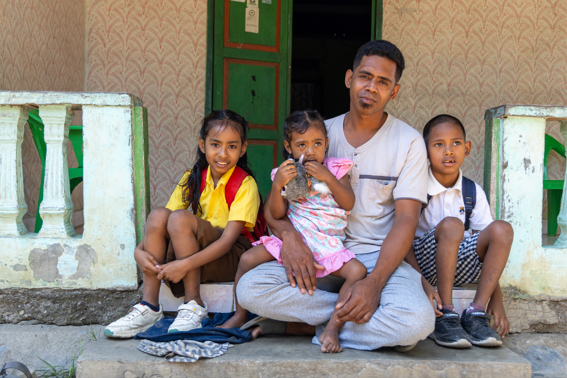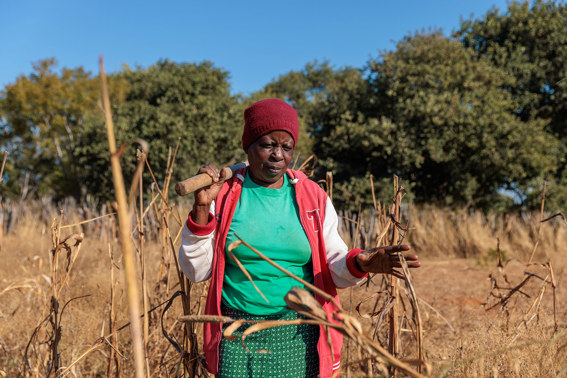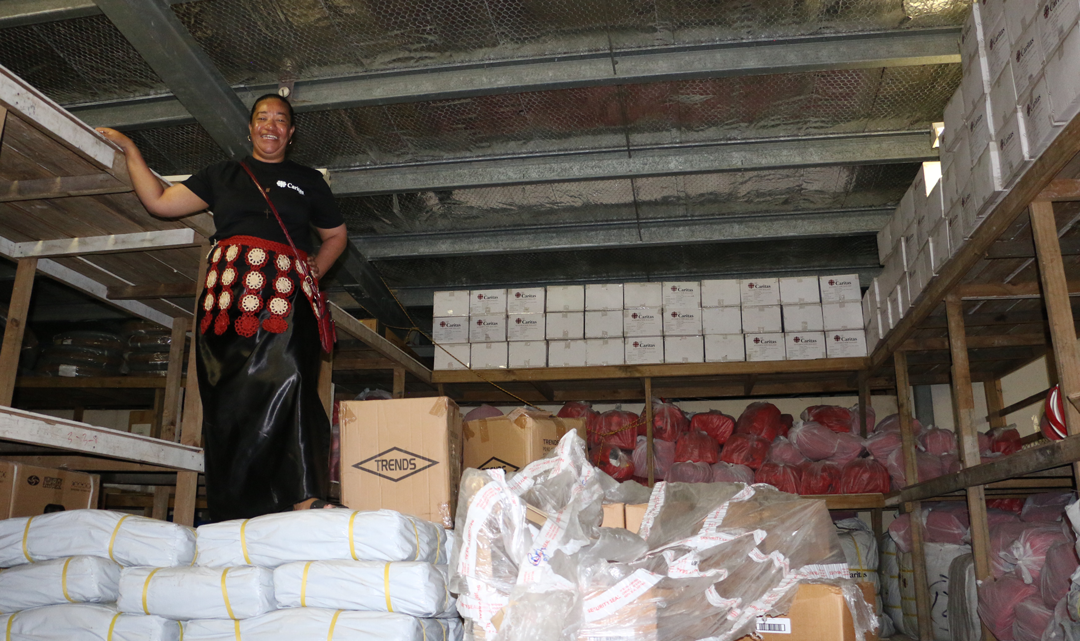A new report on global food security has shown an alarming trend of rising hunger levels across Africa, with nearly 1 in 5 people in the region facing hunger.
The 2024 State of the World’s Food Security report warns that the world is falling significantly behind in achieving the Sustainable Development Goal of Zero Hunger by 2030. Progress in tackling this issue has stalled, with global hunger levels remaining virtually unchanged over the past three years.

Chiquito a father from Timor-Leste who struggled to feed his family amid drought. Photo: Tim Lam/Caritas Australia
Around 733 million people faced hunger in 2023, equivalent to 1 in 11 people globally.

Priscilla inspects her drought affected fields of millet next to her home in Hwange district, north western Zimbabwe. Photo: Richard Wainwright/Caritas Australia
Approximately 20% of the population in Africa – nearly 1 in 5 people – faced hunger last year.

Ayoyo is a volunteer complaints officer who supports her community in southern Ethiopia. Photo: Zacharias Abubeker/Caritas Australia
2.33 billion people globally faced moderate or severe food insecurity.
Hunger on the rise in Africa
While progress has been made in some regions across the world, such as Latin America and the Caribbean, tackling hunger in Africa is trending in the wrong direction.
According to the report, nearly 300 million people across Africa faced hunger in 2023. Additionally, the prevalence of moderate or severe food insecurity (58.0 percent) is nearly double the global average.
The report states that, under the current trajectory, 582 million people will be chronically undernourished by the end of the decade, with more than half of them in Africa.
Conflict, rising food prices and climate change driving hunger levels
Persistent food price rises are contributing to food insecurity and malnutrition globally. Factors such as conflict and climate change are also having an increasingly severe impact on communities’ access to food. In many low-income or middle-income countries, these factors are working in tandem to create a polycrisis that amplifies the impact of food insecurity on the most vulnerable communities.
The lack of access to nutritious diets continues to be a significant concern, impacting more than 2.8 billion people – a third of the world's population. This disparity is most acute in low-income countries, where 71.5 percent of the population lack the financial means to obtain nutritious food, in contrast to 6.3 percent in high-income countries.
Next steps to tackle global hunger crisis
A critical aspect highlighted in the report is the need for increased investments to support sustainable agriculture, enhance food systems and improve nutrition for families.
Caritas Australia is working with local partners on-the-ground in Ethiopia, Kenya, Somalia, South Sudan and Eritrea to support families facing hunger.
With your help, we are working with our partners to bring vital aid to vulnerable families across the Horn of Africa through:
Food distributions to households at risk of malnutrition
Clean drinking water and support for sanitation
Emergency cash transfers to households
Environmentally sustainable and drought-resistant farming training
Your support to the Africa Food Crisis appeal can help communities facing hunger. Your generous donation today means our partners across Africa can respond quickly and efficiently to support vulnerable communities during this crisis.

















